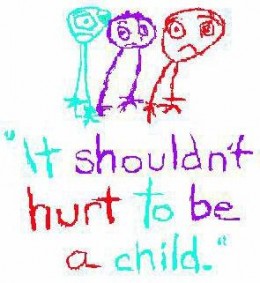Prevention and Intervention
This blogsite suggests that addiction is the consequence, most often, of maltreatment in childhood.
The “hole in the soul” is often the result of poor attachment to caregivers in early childhood, or the effect of abuse or trauma in childhood.
This reduces a brain chemical called oxytocin”the love chemical” which moderates stress levels in the brain and the effect stress has on dopamine, two of the most important brain chemicals in addiction.
We suggest in many articles on this blog that this “hole in the soul” is not only a brain chemical deficit but that this creates a problem with processing emotion, something akin to alexithymia – the reduced ability to identify, label and describe/verbalize emotions.
This emotion processing deficit is very common to all addictive behaviours, not only substance addiction but sex, gambling and eating disorders etc.
Thus this emotion processing means some children are vulnerable to later addiction may not use emotion to guide behaviour.
If you cannot differentiate emotion or what you are feeling then it is like a distress like state which prompts “fight or flight” responding rather than recruiting the prefrontal cortex in reasonable, rational decision making. If you constantly make poor decisions you constantly resort to maladaptive behaviours like substance abuse to eternally regulate your emotions, you fix your feelings via activities which help escape, avoid, or cope with negative emotions.
How can we prevent this in vulnerable children, often children of alcoholic and addicts etc? We teach emotion processing and regulation skills from childhood, in nursery, kintergarten and primary/junior schools.
I believe if we start doing this and also do this with their parents we can perhaps alter the seemingly inevitable course of addiction. Alcoholics and addicts use substances and behaviours to cope, we can instead teach coping strategies and emotion regulation strategies so that we do not need to run away from our emotions and our selves.
Please if you need any more help or directing to suitable article then please contact me again. I am very happy and encouraged that some people are considering this approach in their jobs with children, in their schools, recovery communities or other communities.
At the very least it would not hurt children to have the opportunity to express more articulately how they feel and to help them with these often distressing feelings.
Growing up in a family where there is addition is heart breaking and causes untold hurt and distress. Children in these families often need the wider support of communities, whether educational or other.
Addiction is a combination of genetic inheritance and environment. If we change the environmental influence of genetic coding we can then change behaviour, there is a possibility we can help very young people not become addicts in later life.
We are the environment, all of us.
This is my belief.
Paul
Related Blogs
Emotional Intelligence – an untapped resource for prevention among adolescents and adults
Treating the-effects of trauma in its infancy: maltreated children and EMDR
Papers/Articles



Recent Comments